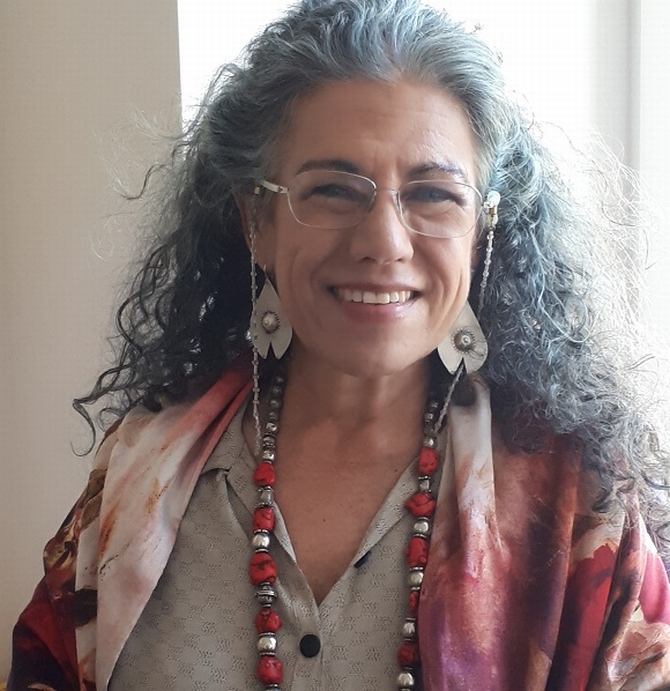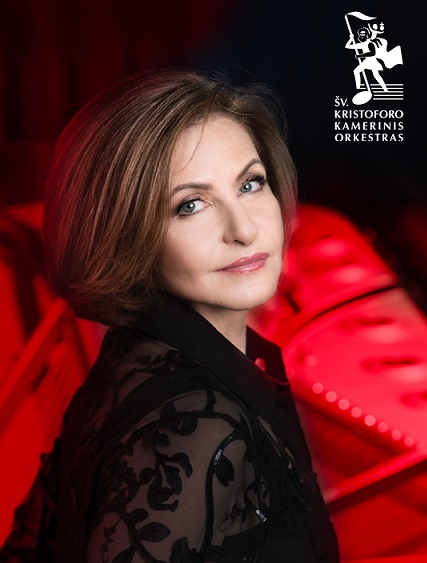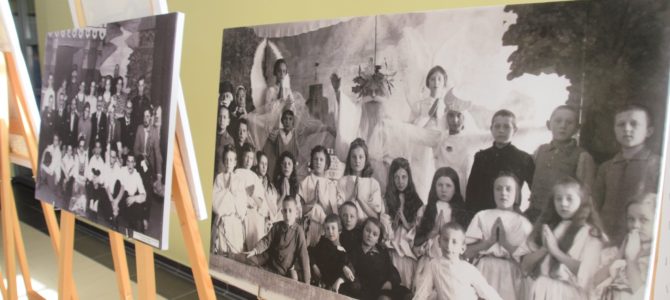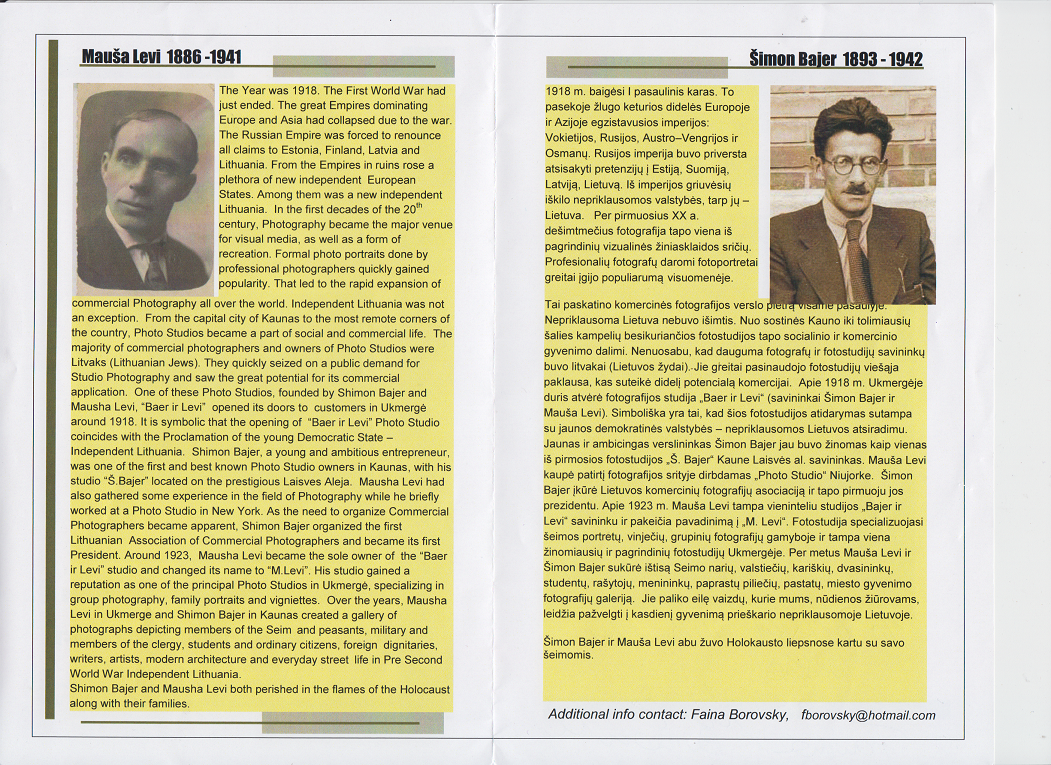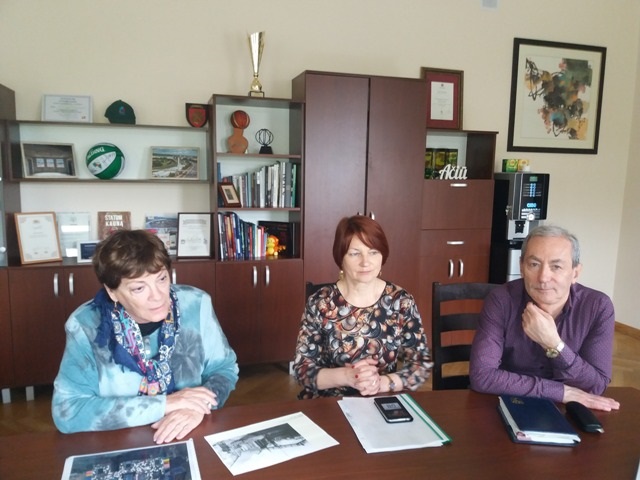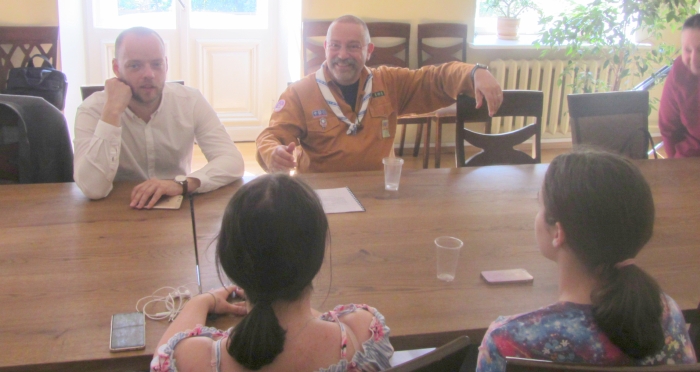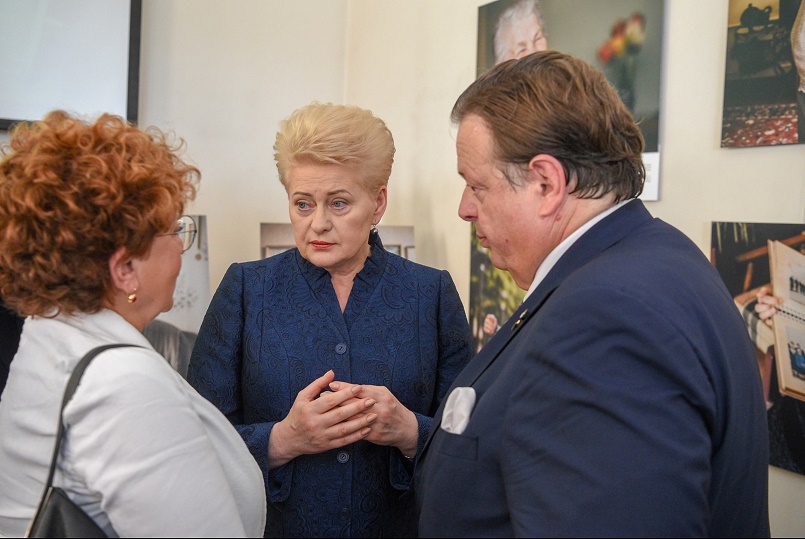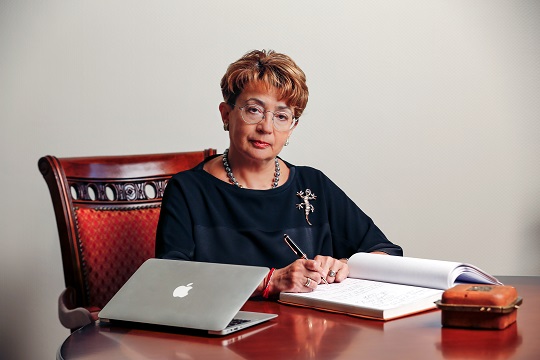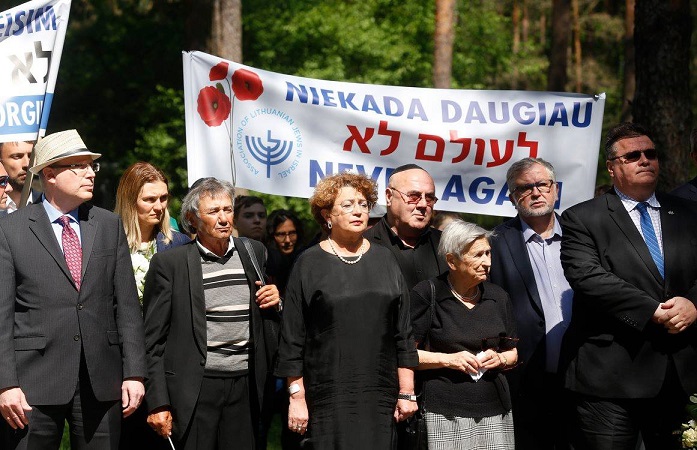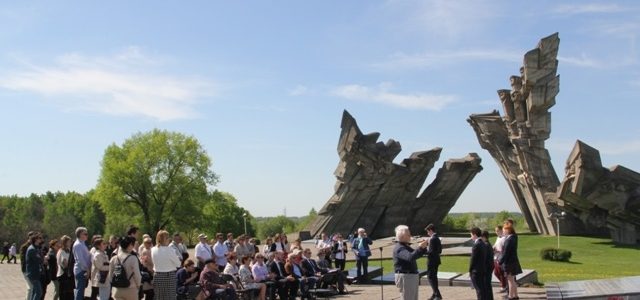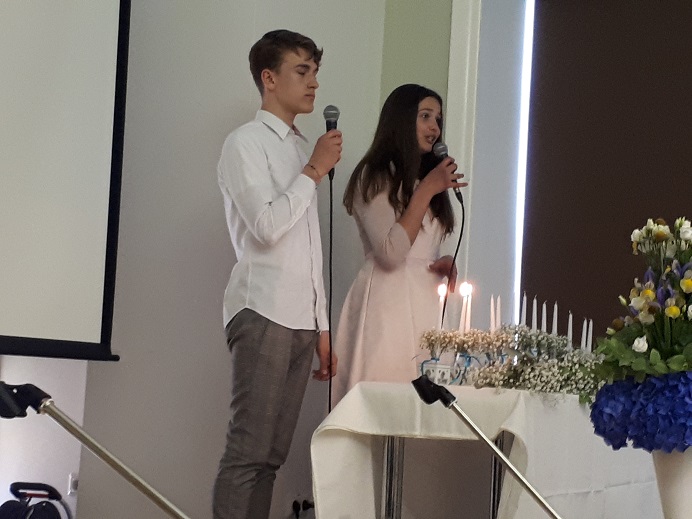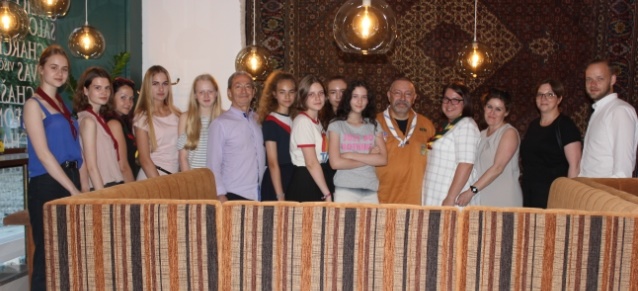
International Forum of Jewish Scouts director Alain Silberstein during his visit to Lithuania last week visited Kaunas where he met with the chairman of the Kaunas Jewish Community, scouts and young people. The French visitor gave an enthusiastic presentation of the Tsofim Yehudim program, plans to expand Jewish scouting activities in Europe and plans to revive Jewish scouting in Lithuania. He reminded his audiences this movement was very active in Lithuania before the Holocaust. Girls who attended the meeting at the KJC said they found his presentation very interesting and inspiring. Scouting, as presented, allows everyone to find themselves and to get involved in activities they love most, and also provides the opportunity to expand one’s horizons to activities which might not have appeared interesting at first. The Jewish scouting movement is attractive because of the values it espouses, its orientation towards Jewish culture and traditions and its tolerance. The ideas interested the audiences in Kaunas and there are great hopes the Jewish scouting movement will return to Lithuania.


